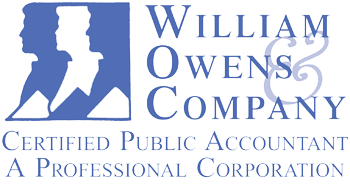
Preparing taxes isn’t most people’s idea of a good time. Usually, tax time is considered something of a downer, especially for anyone trying to do their own taxes. If you make the sound choice to hire a CPA, the entire process can be a lot easier, though. Here are more strategies, tools, and practices that can make tax preparation simpler and more efficient, helping you to avoid common mistakes and reduce the burden associated with tax season.
Understanding Your Tax Obligations
One of the most important steps in simplifying the tax preparation process is to have a clear understanding of your tax obligations. This includes knowing what income is taxable, what deductions and credits you qualify for, and the deadlines for filing. Tax laws can change year to year, so staying informed about updates is crucial. For example, the standard deduction amounts are frequently adjusted, and tax credits, such as the Child Tax Credit or Earned Income Tax Credit (EITC), may also change.
Many taxpayers miss out on valuable deductions or credits simply because they aren’t aware of them. For instance, education-related expenses like student loan interest or tuition fees may be deductible, while home office expenses can provide a tax break for those working from home.
Organizing Tax Documents
Start by creating a filing system, either physical or digital, to store documents like W-2s, 1099 forms, charitable donation receipts, medical expense receipts, and any other documents relevant to your tax situation. Even a giant cardboard box can help, as long as you’re willing to dedicate some time to organizing it later, before you submit the docs to your CPA.
For example, if you’re a freelancer or self-employed, you’ll want to keep detailed records of your income and expenses throughout the year, including receipts, invoices, and business-related purchases. This organization will save time when you sit down to file your taxes and reduce the risk of overlooking important deductions.
Many taxpayers find that using a document scanning app to digitize receipts and forms is a helpful way to stay organized. Apps can store these documents in one easily accessible place, making the tax preparation process more manageable.
Consider Professional Help for Complex Situations
Those with complex financial situations, such as owning multiple businesses, receiving income from overseas, or navigating significant investment portfolios, might benefit from hiring a tax professional. Certified public accountants can offer personalized advice and ensure that your tax return is accurate and compliant with all tax laws.
A professional tax preparer like your CPA can also help you with tax planning strategies that may reduce your overall tax burden, such as tax-loss harvesting for investments or timing the sale of assets to take advantage of lower tax rates. The cost of hiring a professional may be offset by the savings they help you achieve through more effective tax management and avoidance of costly errors.
Staying Ahead of Deadlines
One of the most common pitfalls of tax season is missing the filing deadline or failing to pay estimated taxes on time. Late filing or late payment can result in penalties and interest charges, which can add up quickly. To avoid this, it’s essential to be aware of important tax deadlines, such as the April 15th filing deadline for most individual taxpayers.
For self-employed individuals, quarterly estimated tax payments are required. These payments are due in April, June, September, and January. Failure to make estimated payments on time can result in penalties from the IRS, even if you ultimately receive a refund when you file your tax return.
Setting reminders or using tax software that provides alerts can help ensure that you never miss a deadline. Additionally, if you anticipate needing more time to complete your return, you can file for an extension, which gives you until mid-October to file your taxes. Keep in mind, however, that an extension to file is not an extension to pay, so you should estimate your tax liability and make a payment by the original April deadline to avoid interest and penalties.
Taking Advantage of Tax Refund Opportunities
Receiving a tax refund can feel like a financial windfall, but it’s important to remember that a refund simply means you overpaid your taxes during the year. While many people enjoy the prospect of getting a large refund, it may indicate that you could have used that money more effectively throughout the year.
One way to simplify tax season is to adjust your withholding so that you receive less of a refund but keep more of your earnings throughout the year. This can be done by updating your W-4 form with your employer to ensure that the correct amount of tax is withheld from your paycheck. The goal is to break even or come as close as possible, so you neither owe a large amount of taxes nor receive a significant refund. Even though TV commercials show people celebrating when they are getting a refund, that’s no cause for celebration. It just means you’ve given the IRS a free loan.
Continuous Tax Planning
Improving the tax preparation process involves year-round tax planning rather than waiting until the last minute. Tax planning gives you some leeway to make choices that can lower your tax liability or make the filing process smoother when tax season rolls around.
For instance, you can contribute to tax-advantaged accounts such as retirement accounts (401(k) or IRA), health savings accounts (HSA), or flexible spending accounts (FSA). These contributions reduce your taxable income, which can lower your overall tax liability. Consider donating to qualified charities before the end of the year, too..
Don’t wait until the last minute or burn the midnight oil the night before that all-important postmark date. By taking proactive steps throughout the year, you can simplify tax preparation and avoid the rush and stress that often accompanies tax season.
Tax prep doesn’t have to ruin your week. By staying organized, understanding your tax obligations, and leveraging technology or professional help when needed, individuals can simplify the process and avoid common pitfalls. Continuous tax planning, year-round organization, and the use of professional assistance can all contribute to a smoother tax season with fewer headaches. Contact your CPA to learn more.
by Kate Supino
